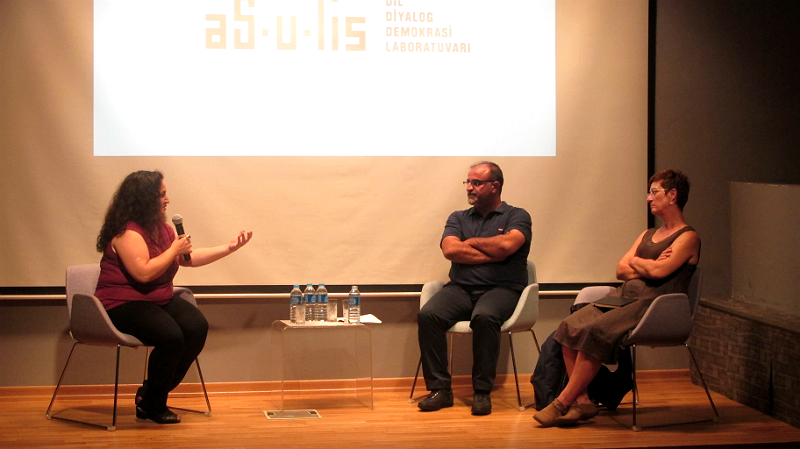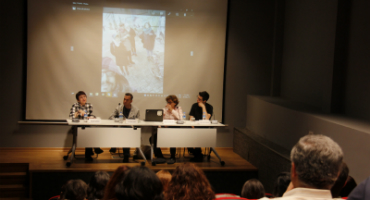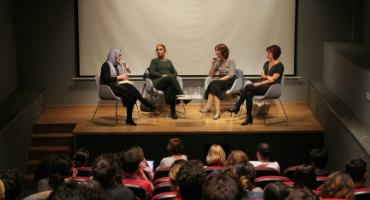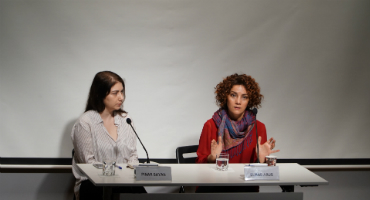The second panel of ASULIS Discourse, Dialogue, Democracy Laboratory “Literature and Discrimination” took place at Anarat Hığutyun Building in Havak Hall under the moderation of Karin Karakaşlı and with the participation of authors Ayfer Tunç and Kemal Varol on the June 30, 2016.
The talk began with the question of Karin Karakaşlı: “How do literature form a new language without creating a propaganda language?” Following the discussion on this question, Ayfer Tunç and Kemal Varol shared respectively their experiences about literature.
According to Ayfer Tunç, one of the most important questions is how to create a new language by filling the places of the devitalized concepts. Another remarks coming from Tunç was on how the language that we try to find may be able to touch people.
Relatedly, Kemal Varol stated that the political problems that haunt the literature must be addressed as issues of conscience. Varol said that the novelist should make the voice of discriminated groups heard not to impress readers but to convince them on the relevant issue. In addition, Varol underlined that the important thing here is to raise some questions about the injustices in Turkey through the literature by making inquires and astonishing the reader without transforming the text into a propaganda instrument.
On the other hand, according to Tunç, writer should be able to break the barriers in minds and go beyond the current conjencture. At this point, Varol agreed with Tunç saying that we can go beyond our prejudices and make people feel only when we surpass the current politics and be able to describe a single emotion or even a glance to the audience.
Last but not least, Tunç explained that our essential problem in the literature today is related to discrimination and in this sense, many authors are in need of confronting their own ideological weaknesses. She mentioned that the responsibility of the author toward readers is to find their own inhuman parts and to reveal them.






